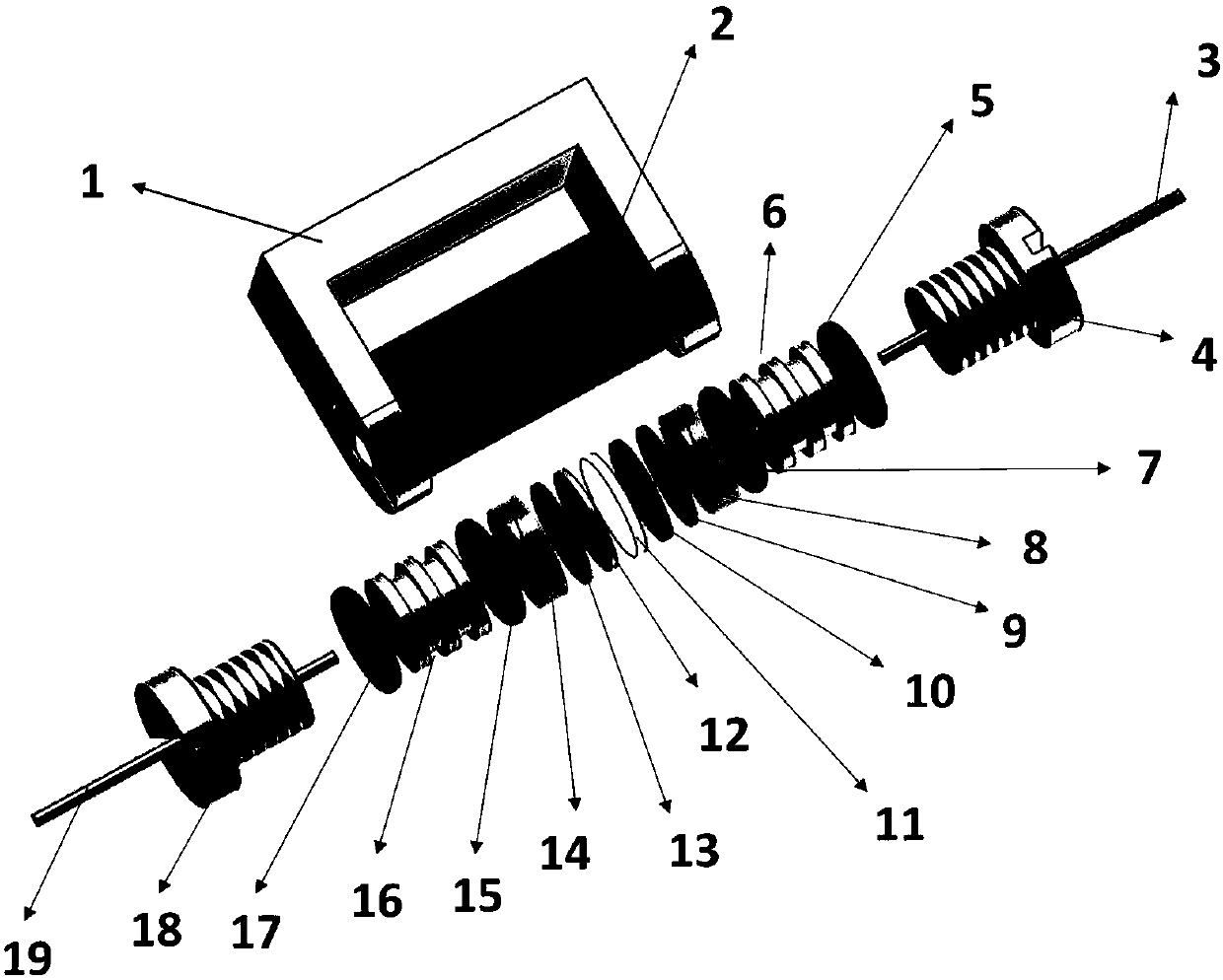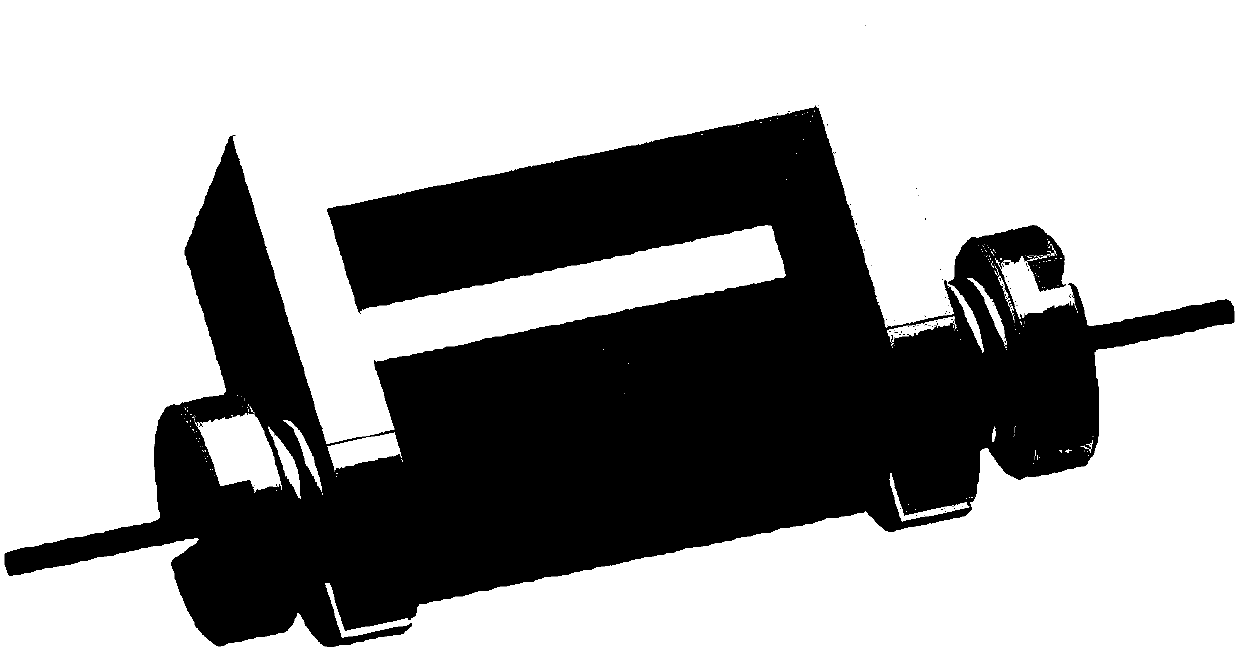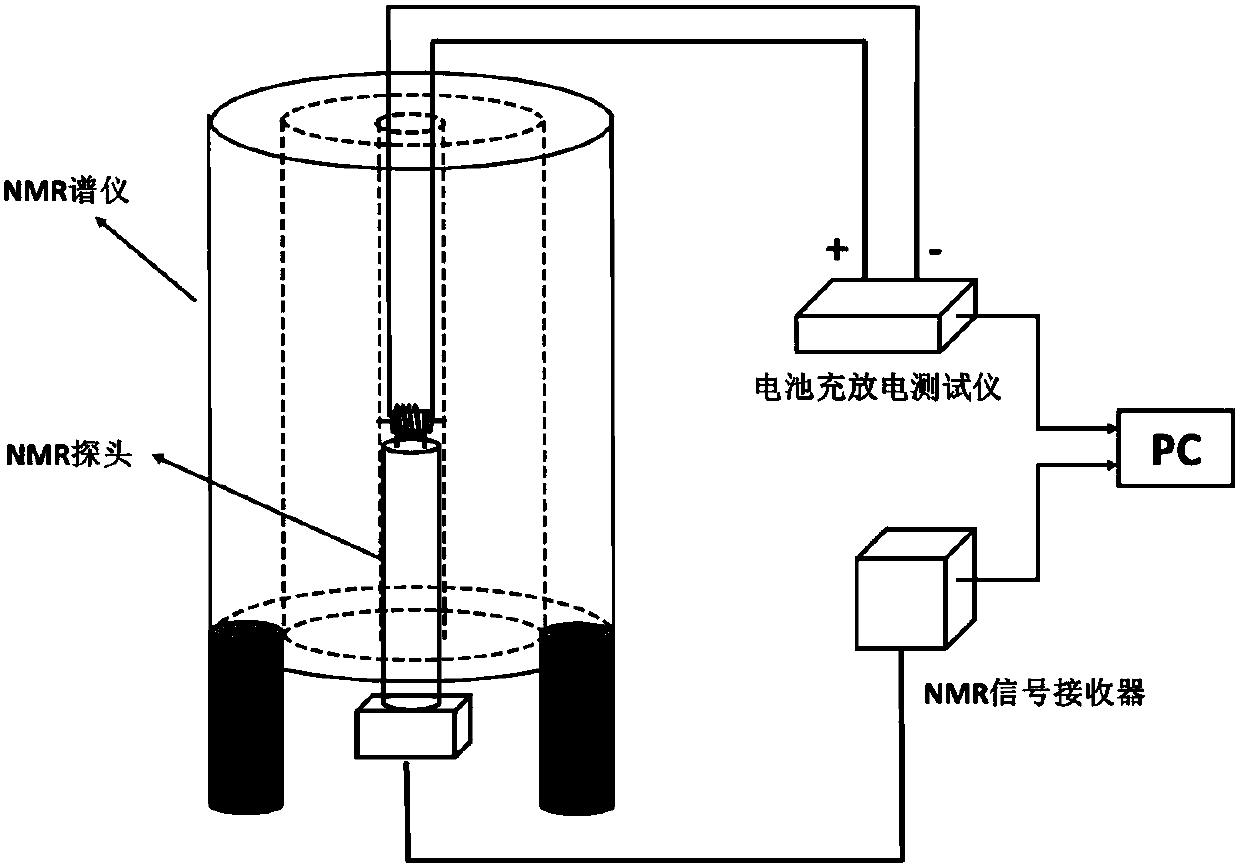Nuclear magnetic resonance in-situ battery test accessories and test method thereof
A nuclear magnetic resonance and in-situ testing technology, which is applied in the fields of magnetic resonance measurement, secondary battery manufacturing, and magnetic variable measurement, can solve the problems of complex in-situ battery structure, inability to truly reflect battery structural changes, and large battery devices. Achieve improved electrochemical performance, simple structure, good sealing effect
- Summary
- Abstract
- Description
- Claims
- Application Information
AI Technical Summary
Problems solved by technology
Method used
Image
Examples
Embodiment 1
[0048] figure 1 A schematic diagram of the NMR in situ cell attachment. The in-situ battery was used to observe the in-situ dynamic changes of the lithium-sulfur battery during charge and discharge. Specifically include the following:
[0049] Selection and assembly of in-situ battery materials:
[0050] The battery cylindrical shell 2 is fixed on the battery holder 1 through the first and second pressurized nuts;
[0051] Between the first pressurizing nut 4 and the second pressurizing nut 8, the inside of the battery cylindrical casing 2 is sequentially provided with a first fixed platform 6, a first sealing insulating pad 8, a first current collector 9, and a positive electrode sheet 10. , a diaphragm 11, a negative electrode sheet 12, a second current collector 13, a second sealing insulating pad 14, and a second fixing platform 16, each fixing platform is provided with two sealing rings.
[0052] Use quartz glass battery cylinder shell 2, about 20mm high, 10mm outer d...
PUM
 Login to View More
Login to View More Abstract
Description
Claims
Application Information
 Login to View More
Login to View More - R&D
- Intellectual Property
- Life Sciences
- Materials
- Tech Scout
- Unparalleled Data Quality
- Higher Quality Content
- 60% Fewer Hallucinations
Browse by: Latest US Patents, China's latest patents, Technical Efficacy Thesaurus, Application Domain, Technology Topic, Popular Technical Reports.
© 2025 PatSnap. All rights reserved.Legal|Privacy policy|Modern Slavery Act Transparency Statement|Sitemap|About US| Contact US: help@patsnap.com



